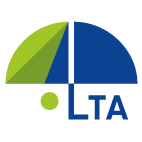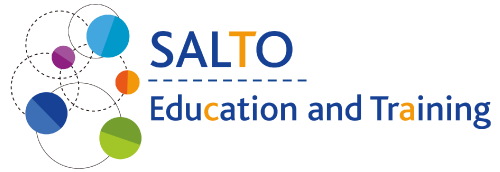Training Impact Design for NA Staff and Experts/Assessors

Main Info
TCA Description
This training is a 3 day event for NA Staff and External Assessors, that focusses on the application of 'impact (results based) thinking' in project and programme design.
The training consists of two major thematic strands:
Project and programme management principles:
The training discusses the definition of impact and intervention logic according to OECD-DAC criteria and looks into different programme management models. It explores which combination of tools and approaches is effective when designing project proposals.
Models used include the logical framework, theory of change and outcome mapping. During the training participants apply methods and tools to case studies and discuss the pro’s and con's of the different methods in their specific national context.
Effective design support for applicant organisations:
During the training the roles and responsibilities of the National Agencies, experts and applicant organisations and beneficiary groups are examined. Four actors with different roles to play, but also with a common goal: an effective Erasmus+ programme.
The training revolves around the central question of which strategies a NA can follow to provide support in project design to applicant organisations. The course works on the principal idea that properly designed projects lead to better implementation and thus better impact.
After the training, participants:
• Understand what impact is, why it is important and how you can apply impact thinking in a practical way.
• Understand the key differences between output and outcome/impact results.
• Have practiced with various programme management methods.
• Have reflected on what can be done to strengthen impact thinking within their national context.
The programme will start at around 2PM on Wednesday 22 January and end after lunch on Friday 24 January (at around 2PM). All participants will need to be present for the whole programme. Training will take place on Wednesday afternoon, all day on Thursday and on Friday morning.
For all participants, the Czech NA will arrange and cover: 2 nights (check-in Wednesday; check-out: Friday) and meals for the duration of the event (first meal: dinner on Wednesday; last meal: lunch on Friday).
Partners and participants
NA staff and external experts involved in assessment of applications for KA120, KA220 and KA210.
Pending booked places
Accepted places
TCA Participant Application
Research type Long-term Activity Info
The commission places great emphasis on the importance of impact of the Erasmus programme. Applicant organisations and National Agencies are challenged to increase the quality and visibility of programme results. Considering the reach of the Erasmus programme in terms of its (inter) national context, priorities, education sectors and funding modalities impact can come in many different shapes and forms. Recognising what impact is in a specific context and determining an impact approach that supports the further development of impact is a challenging task for all stakeholders involved.
This long term TCA aims at a systemic change in the way NA’s applicant organisations and experts design, implement and monitor projects and mobilities, it seeks to develop skills, tools and attitudes that enable NA staff, assessors, and beneficiary organisations to improve the programme’s effectiveness. In doing so it recognises the mutual dependency that exists between the stakeholders in achieving programme results, and the joint effort that is needed to develop and implement, a coherent, impact driven programme.
The outcome of this process will be a mutual understanding of what impact is, supporting tools that help ensure that impact is an integral part of project design and insights into research methods and research results that are useful in designing and measuring for impact.
To arrive at a systemic change in the way NA’s applicant organisations and experts design, implement and monitor projects and mobilities, it seeks to develop skills, tools and attitudes that enable NA staff, assessors, and beneficiary organisations to improve the programme’s effectiveness. In doing so it recognises the mutual dependency that exists between the stakeholders in achieving programme results, and the joint effort that is needed to develop and implement, a coherent, impact driven programme.
2022:
- Project meetings.
- Setting-up structure for LTA; study into need for impact support and training design.
- Training design and collection of current tools in use by NAs.
2023-2025:
- Training sessions impact, monitoring and evaluation for stakeholders (in 2023 impact and monitoring training events for LTA partners only).
- Implementation study on research design.
- Development of impact tool package.
2025-2026:
- Dissemination workshop reiterating research findings and LTA outputs to wider audience.
Outputs
Three transnational studies :
· - A study analysing context specific need for impact support mechanisms in participating countries
· - A study leading to the development of research guide for impact in E+.
· - A study leading to the development of a communication and dissemination guide for impact results.
National level studies and methods translated and disseminated to wider E+ community
Further development of supporting e-tools for project design and monitoring for NA’s, assessors, beneficiary organisations of running projects.
Thematic workshops for E+ beneficiaries, applicants, NA Staff and external experts improving their ability to proactively drive programme results.
A conference to synthesize and disseminate the output of the TCA
Expected outcomes
· Understanding of the nature and development of outcome and impact level results in the context of E+. Extended use of national research results E+ community.
· Relevant design and monitoring tools and research methods for impact.
· E+ stakeholders understand their roles and responsibilities with regard to the development of programme results and jointly work towards better impact of the programme.
· E+ stakeholders are better able to steer towards better programme results through planning and monitoring. Impact approaches internalized in participating NA’s


